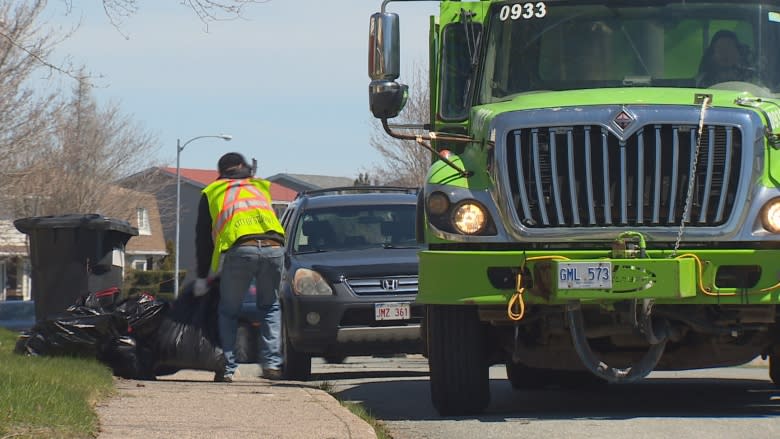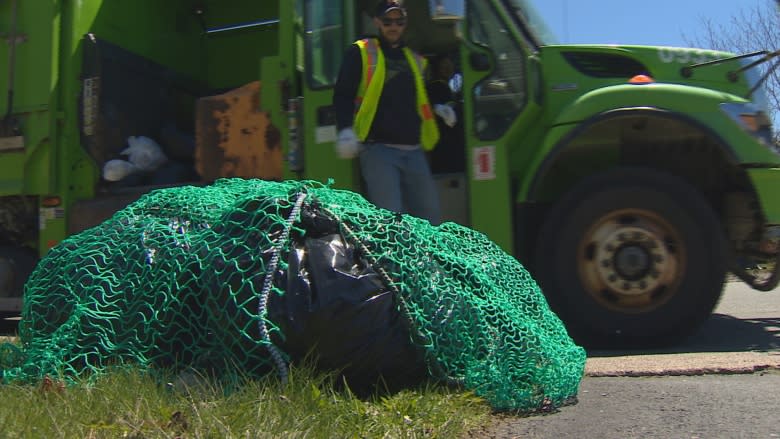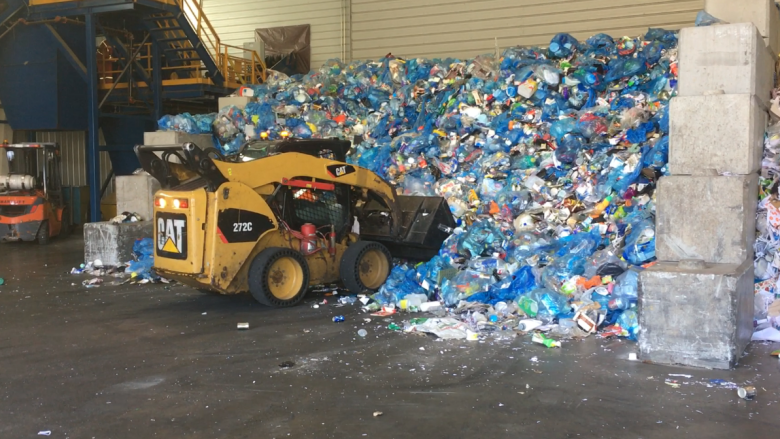Last chance to have your say in St. John's robo-garbage plan
The City of St John's has laid out a plan to meet face to face with people about automated garbage collection.
The system, announced in July 2015, would see residents put their curbside garbage in bins instead of bags. The bins would then be emptied by trucks fitted with robotic arms.
The specialized trucks have been ordered, there's a map of streets in and around downtown that won't see automated garbage collection and now the city now wants to talk with people during 12 public engagement sessions.
The sessions began at the H.G.R. Mews Centre Tuesday afternoon and will continue until June 17.
Residents who took part in focus groups have expressed some concerns, which the city said can be addressed at the public consultations.
"Getting bins to the curb, the size and dimension of the bin, dealing with it in the winter, what happens in theft or vandalism, how does the wind impact it etcetera? " said Dany Breen, chair of public works committee.
The city, Breen said, is keen on hearing from people who have physical limitations and landlords who own houses with multiple units.
Long road
Some of the challenges unique to the city include its steep hills, narrow roads and the big one — weather.
"If there's going to be a high wind, we may not be able to collect garbage that day," said Andrew Niblock, the city's director of environmental services.
The size of the bins remains contentious.
A small container holds four bags, the larger one holds six and residents appear divided.
"In focus groups the smaller bins are by far the most popular. On our engage page it's very close. I'll say it's a 50-50 split right now," said Niblock.
Smaller bins are less expensive, costing $3 million dollars for 41,500 bins that will be distributed.
The larger ones, which can hold more bags, will cost an extra $800,000.
Automated garbage will start in 2018 but won't be fully implemented until 2019.
New garbage trucks have been ordered — the existing fleet has reached it useful life — at a cost of $300,000 each.
Eleven will be delivered this fall, and four more next year.
The future
Composting is on hold until 2025.
The reason has more to do with the small population base and the cost of processing and transporting it and then there's the question, who do you sell it to?
The farming sector isn't keen on using curbside compost.
And forget glass ever being part of the curbside program in St. John's.
"Glass is able to compromise the recycling quality, and also has occupational health and safety issues that come with it. So it's certainly not something we're looking at adding to the curbside collection process," said Breen.





